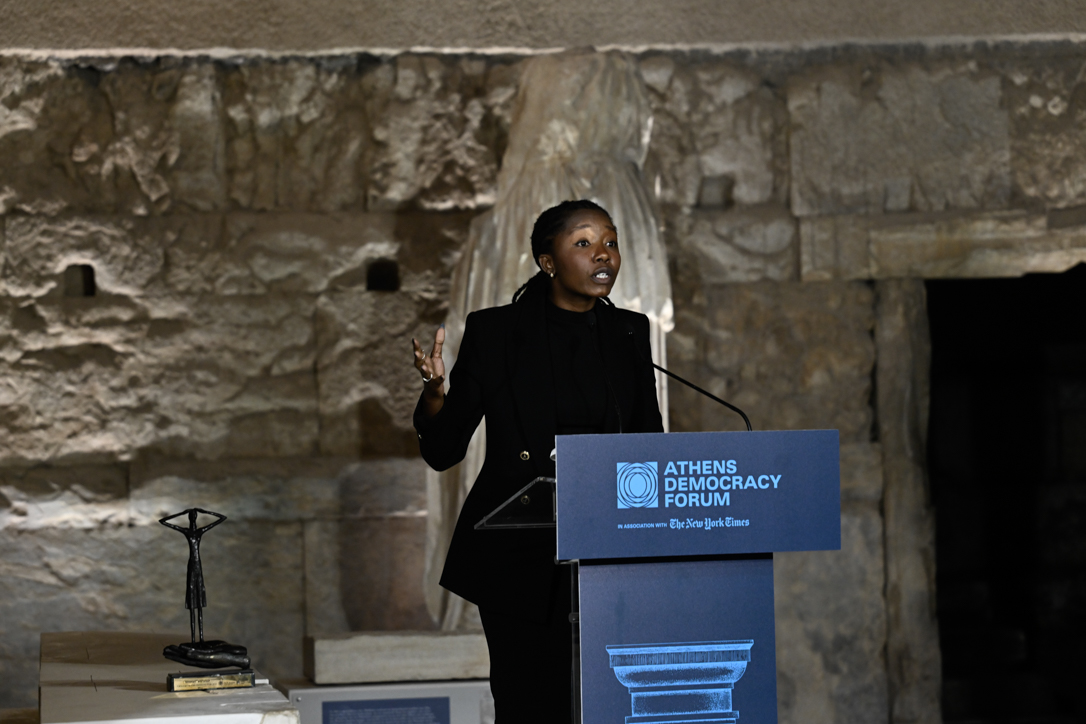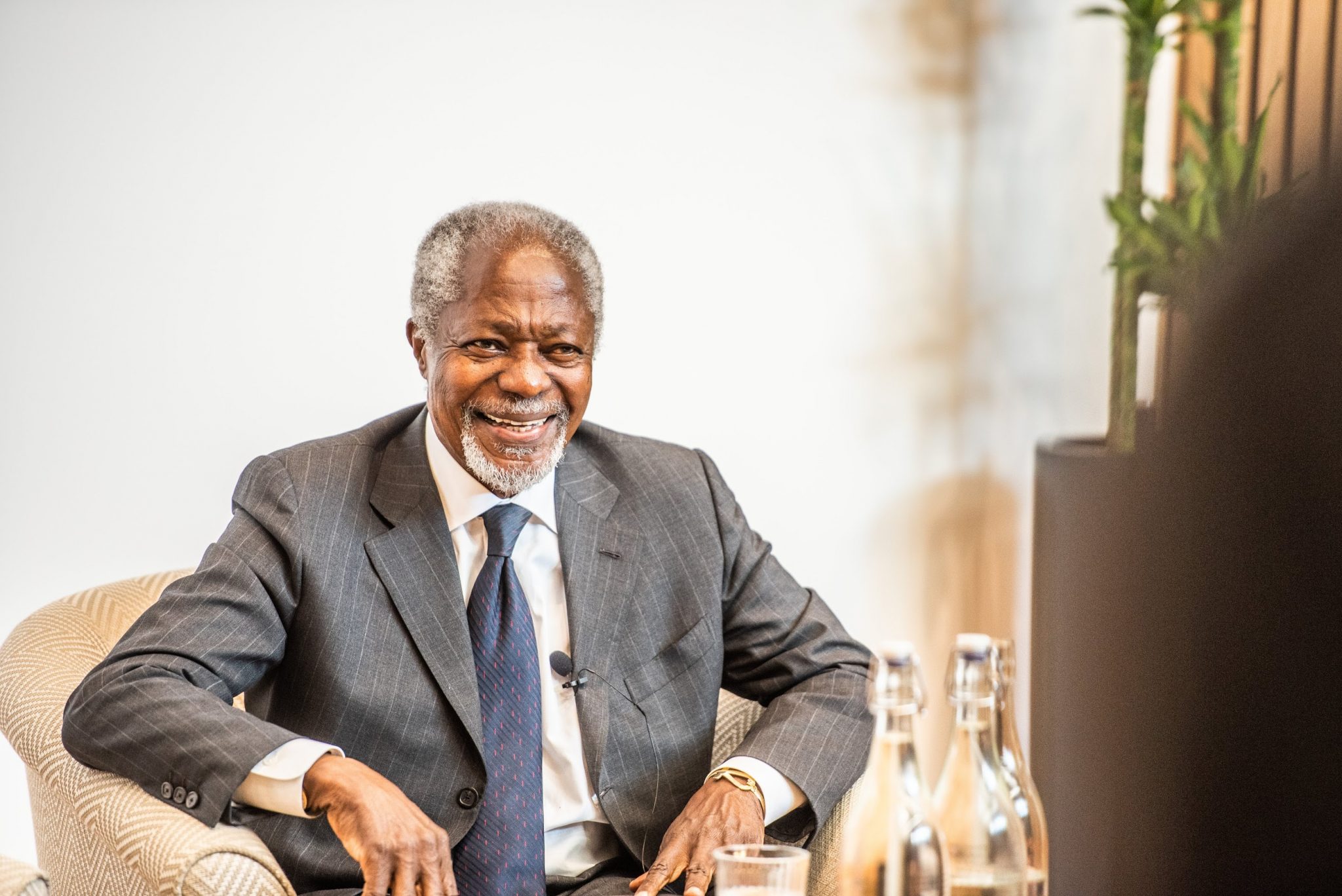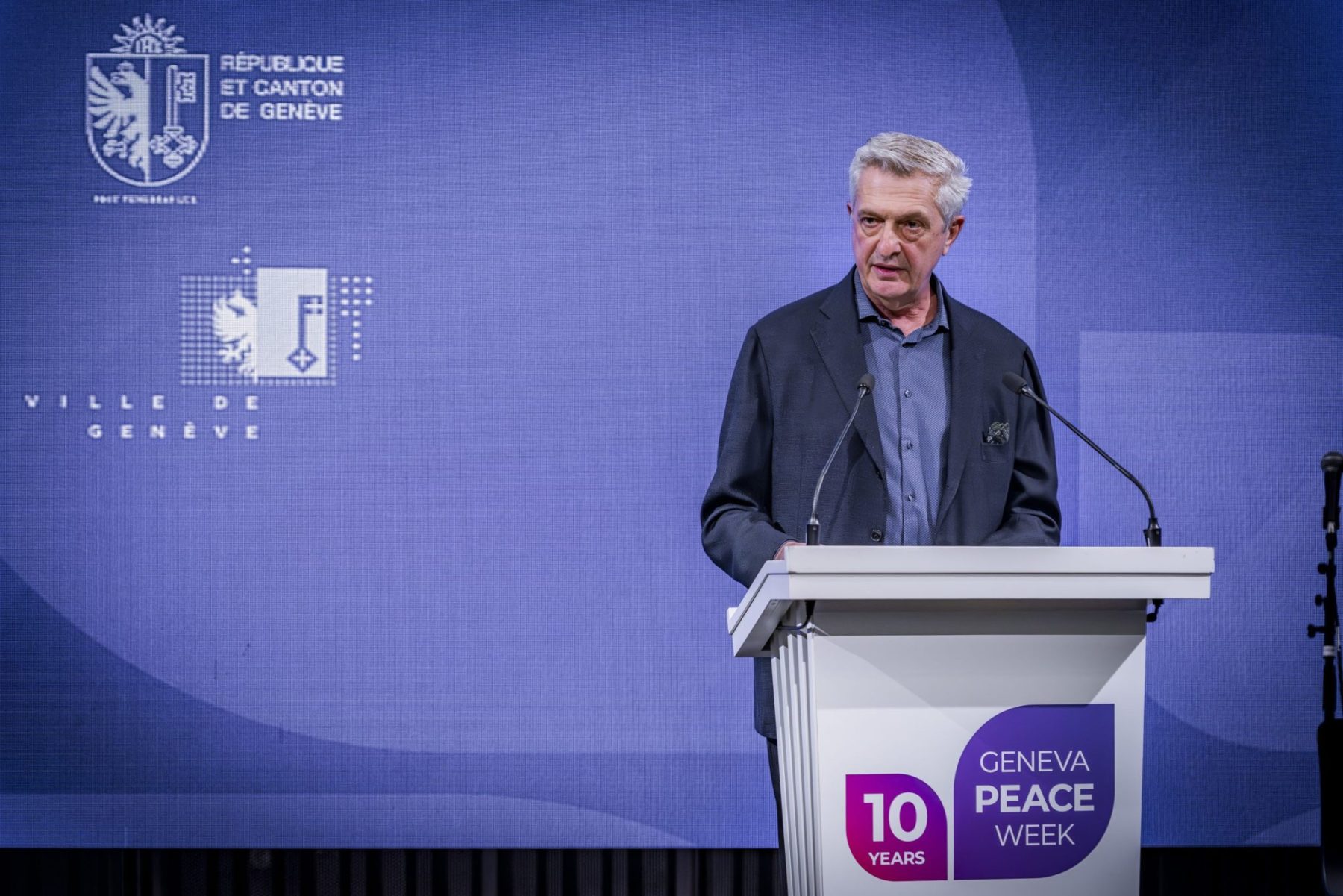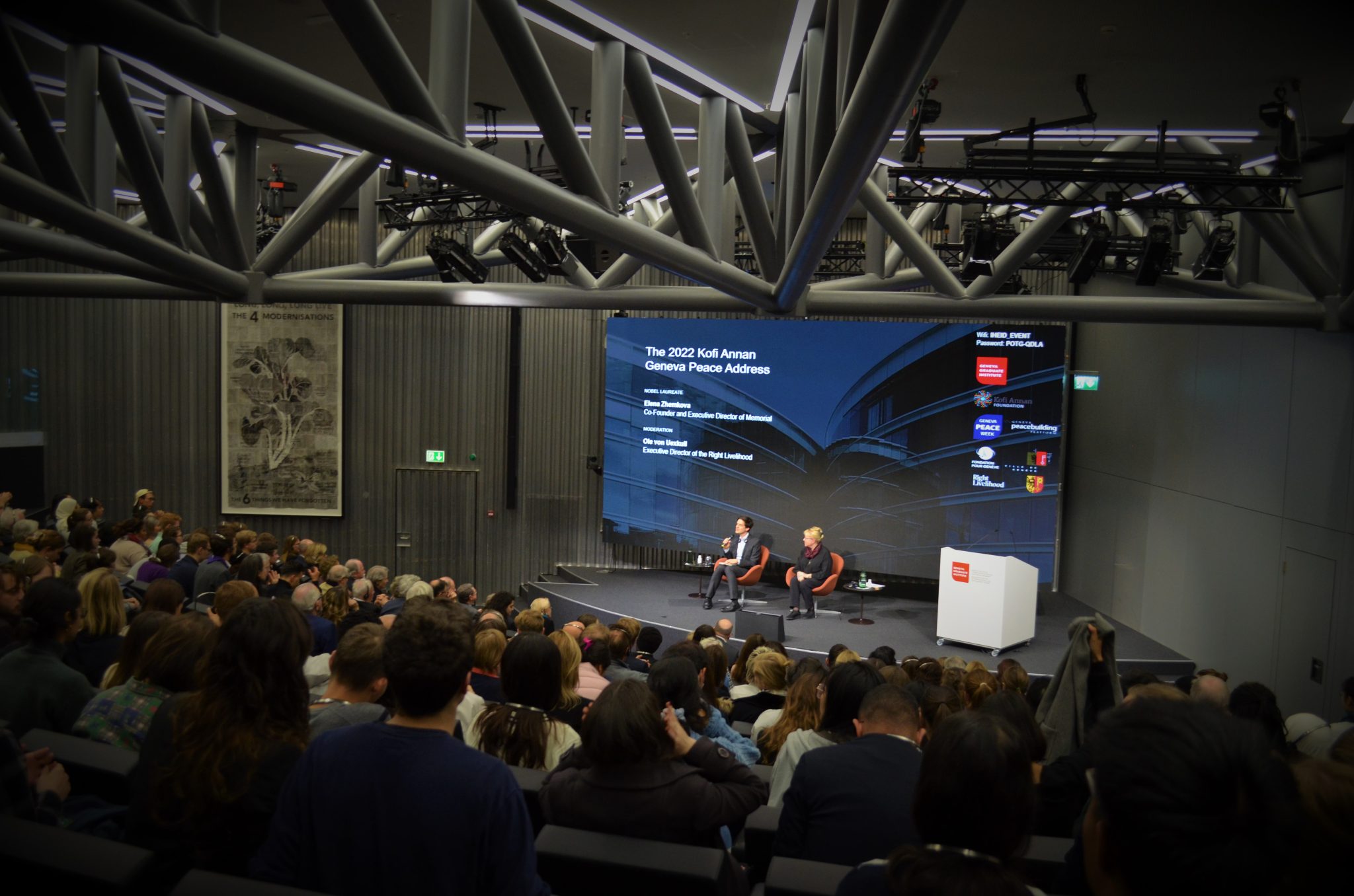The Inaugural Kofi Annan Lecture delivered by Hon. Mia Amor Mottley
“Trust and inclusion are indivisible… We need a New Internationalism, a truly inclusive United Nations and international system.” – Mia Mottley
On 23 September 2022, the Kofi Annan Foundation, in partnership with the International Peace Institute, Open Society Foundations, and International Crisis Group co-hosted the inaugural event in the Kofi Annan Lecture Series featuring H.E. Mia Mottley, Prime Minister of Barbados. Learn more about the Kofi Annan Lecture Series.
Welcome Remarks:
Zeid Ra’ad Al Hussein, IPI President and CEO
Nane Annan, Wife of His Excellency the late Kofi Annan, Member of the Board of Directors of the Kofi Annan Foundation
Mark Malloch-Brown, President of the Open Society Foundations
Featured Speaker:
H.E. Mia Mottley, Prime Minister of Barbados
Concluding Remarks:
Comfort Ero, President of International Crisis Group
The Honorable Kevin Rudd, Former Prime Minister of Australia, Chair of the IPI Board of Directors
Watch the First Kofi Annan Lecture
The Inaugural Kofi Annan Lecture
Delivered by Hon. Mia Amor Mottley, Prime Minister of Barbados | New York | 23 September 2022
![]()
An excerpt from the first lecture in the Kofi Annan Lecture Series delivered by Hon. Mia Amor Mottley
THE TRUTH IS THAT, even before I start on the substance of my remarks, the emotion is very heavy. That is because I am still that little girl who watched Kofi Annan, along with Nelson Mandela, and Fidel Castro, and Bill Clinton, and others who defined the world in which I grew up, even as I was inspired by Bob [Marley] and Jimmy [Cliff] and Sparrow and others. So this is a special moment because it allows us to truly pay tribute to a man ahead of his times.
It is truly a privilege to have been asked by this group of organizations to give this inaugural lecture in honor of this man ahead of his times, Kofi Annan. For many states, the multilateral system that Kofi championed for his professional life is of the highest importance. He knew that big places are made up of small places, and when he visited my own country, Barbados, in 2002, where he came to inaugurate a new United Nations house, it was special for us. He expressed this with his usual sensitivity and candor, and I quote: Small countries appreciate that collective interest and collective action is also the national interest… What happens in your nations is of great concern to the rest of the world. Your countries are places where, in concentrated form, many of the main problems of development and environment are unfolding. Your experiences, your experiments, your transformation— can guide the way to a brighter future for all peoples.
Those were his words. I therefore speak to you today in a mode of reflection, as a daughter of the African diaspora and a leader of one of those countries of which he spoke in that quotation. I speak to you about the life and legacy of one of Africa’s finest sons, one who led the world truly and made a real difference: Kofi Atta Annan, a Nobel laureate, orator, visionary, mediator, intellectual, optimist, and, above all, a gentleman.
I speak to you about how that legacy resonates so strongly today as the world is confronted with perils and challenges unknown for generations, but against which Kofi Annan warned us time and time again. Today, as a proud daughter of Africa, I will speak to the legacy and vision of an African son, a legacy of which we can all be proud and a vision with which I and many others closely identify.
Make no mistake, Kofi Annan’s perspective and work were shaped by the fact that he was African, that he understood the enduring impacts of colonization on the environment, on society, on the economy, and on our psyche. His approach as UN secretary-general, I believe, was influenced by the fact that, across his continent, the struggle for peace, to end poverty, for genuine independence and true self-government still endured against a history of colonial occupation, citizen oppression, rampant resource exploitation, and, regrettably, as I have said over and over, an imperialistic post– World War II order still very much in place. In these remarks, I would like to look at him as an African son, as a global citizen, and assess his contribution, his legacy, and his vision as secretary-general of the United Nations. I believe we have an obligation to root him in today.
It was my honor and pleasure to meet him on that occasion when he visited Barbados exactly twenty years ago. I was then a young minister carrying the portfolio of attorney general, having recently been minister of education, youth, and culture. My hair tells me that time has flown, but my body and mind tell me that it was yesterday. Speaking at the opening of UN House in Barbados, he paid tribute to our country’s aspirations, capacities, and achievements, and he made a statement that every Barbadian will tell you continues to be quoted by all: that Barbados punches far above its weight in the global community. It brought pride to our people when he delivered those remarks. It was a generous compliment, and believe you me, we have continued to embrace it with enthusiasm and pride. It continues to inspire us, coming as we do, from a rock of just 166 square miles. We accept the responsibility that comes with the compliment, understanding only too well the battles that have been fought have been hard won, and that we must continue to fight new battles.
In 1994, Barbados successfully hosted the first United Nations Conference on Small Island Developing States, marking the first time that the United Nations held a global conference in one of the world’s smallest states. Similarly, I speak to you today as president of UNCTAD [the UN Conference on Trade and Development], Barbados again having been the smallest nation to lead that conference last year in October of 2021.



